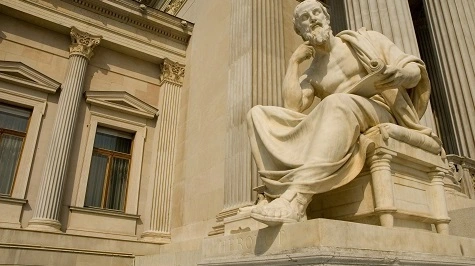
Philosophy and Religion
Explore some of the profound and profane issues and questions which have interested and challenged humanity across the ages. Find out what the great philosophers like Socrates and Nietzsche and great theologians like Hippo and Aquinas have said, and their impact on existential debates. Not only learn, but discuss your own insights into the big-picture discussions of life and death.
Available Classes
Simone de Beauvoir & Sartre
<p>The course will cover de Beauvoir’s philosophical Existentialism and her many novels. We will compare and contrast her form of Existentialism to Jean-Paul Sartre, her longtime friend, lover and
...Available Classes
Descartes: I Think Therefore I Am
<p>René Descartes is often credited with being the “Father of Modern Philosophy.” His project was ambitious: to find a new basis for all knowledge. In pursuing this aim he set in motion many of the
...Descartes: I Think Therefore I Am
<p>René Descartes is often credited with being the “Father of Modern Philosophy.” His project was ambitious: to find a new basis for all knowledge. In pursuing this aim he set in motion many of the
...Available Classes
The Good, the Bad, and the Ugly of the Human Condition
<p>Presented by a team of tutors, this special course explores questions about the human conditions through looking at examples of when we are good, ugly and downright bad. We ask such questions as:
...

Available Classes
The Power of Myth: The Modern World
<p>What is the nature of myth? How do we explain its power and enduring significance in the modern world? What is the relation between myth, meaning and purpose in the modern period? Why does it
...Available Classes
Ethics and Social Media
<p>Do social media organizations behave ethically? Are social media addictive or harmful, in any way? Do they promote tolerance, respect, compassion and open, informed, rational debate? What are the
...
